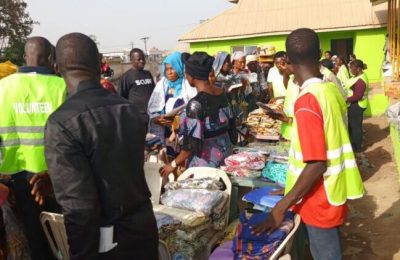
The Governor of Bayelsa State, Senator Douye Diri, on Thursday presented a total budget of N689,440,348,916.30, named the “Budget of Assured Prosperity,” for the 2025 fiscal year.
During a plenary session at the Bayelsa State House of Assembly, Diri stated that implementing the 2025 budget will require a high level of efficiency and coordination across government ministries, departments, and agencies.

Breaking down the budget allocation for various sectors, Governor Diri noted that N178,761,880,407.32 was allocated for Works and Infrastructure, N47,111,696,198.40 for Education, and N37,850,000,000.00 for Sports.
Other allocations include N13,680,000,000.00 for Urban and Housing Development, N14,450,000,000.00 for Energy and Power, N16,650,000,000.00 for Agriculture, N19,000,000,000.00 for Security, N19,194,188,466.00 for Health, and N10,200,000,000.00 for Community Development.
The governor emphasized that the success of the 2025 budget will largely depend on the level of fiscal and policy coordination, adding that the prosperity-focused administration aims to pursue robust development as outlined in the Assured Budget.
ALSO READ: Suspected herdsmen kill 15 in Benue community
He stated, “We have carefully crafted this 2025 budget to mobilize funds for human and capital development initiatives across the seven core areas of the Assured Agenda.
“These areas include agricultural and rural development, sports and youth empowerment, security and peace, urban renewal and rural development, healthcare delivery, energy generation, economic growth and tourism, and education focused on innovation and technology, while keeping recurrent expenditures within limits.”
Reviewing projects and programs executed under the 2024 budget of N489,433,632,374.32 and a supplementary budget of N270,800,000,000.00, Diri highlighted ongoing projects, such as the continuation of the three senatorial roads, construction of internal roads in Yenagoa, establishment of technical colleges in all local government areas, grants to tertiary institutions, welfare and wage awards for civil servants, and youth training in agriculture for food security.







